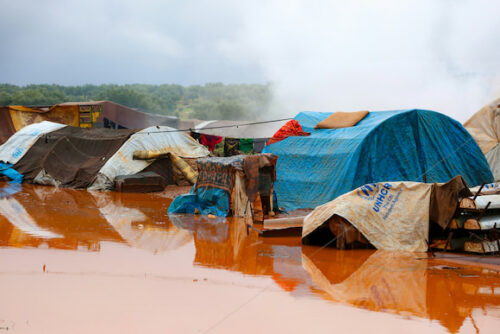
Infectious Diseases Nutritional Diseases
Associations between undernutrition and malaria infection: A case–control study from Rwanda. Malaria Journal.
• Research & Reports
WHAT IS PLANETARY HEALTH?
Global nutrition security is faltering as food quality, availability, and access deteriorate and contribute to health conditions and disparities.
The degradation of Earth’s natural systems, combined with anthropogenic CO2 emissions, poses a critical threat to global food systems. Beyond the climate-induced impacts on quantity of crops, elevated CO2 levels directly affect the nutritional value of staple crops. As of 2023, the globally averaged CO2 concentration reached 420 ppm, with projections suggesting levels could exceed 550 ppm by mid-century. This increase could lead to an additional 1.9% of the global population (approximately 175 million people) becoming zinc deficient, 1.3% (122 million people) facing protein deficiencies, and nearly 1.4 billion children under five and women of childbearing age living in regions at the highest risk of iron deficiency-induced anemia. Vulnerable populations, especially in low-income regions where diets are predominantly plant-based, face a heightened risk of multiple nutrient deficiencies.
Deforestation, soil erosion, biodiversity loss, and pollution further undermine the planet’s ability to support and produce food sustainably. Climate instability exacerbates these challenges, with extreme weather events, shifting rainfall patterns, and rising temperatures disrupting agricultural yields and destabilizing growing seasons. Meanwhile, the depletion of vital resources, such as freshwater and fertile soil, along with declines in pollinator populations due to habitat loss and pesticide use, jeopardizes crops critical for food production.
These interconnected issues collectively compromise food availability, access, and nutritional quality, intensifying the risk of hunger and malnutrition for billions, particularly in low-income communities reliant on subsistence farming. Addressing these challenges demands urgent, coordinated efforts to restore and protect Earth’s natural systems while fostering sustainable and resilient food systems.
Infectious Diseases Nutritional Diseases
• Research & Reports
Displacement and Conflict Life Stage and Reproductive Health
• Research & Reports
Nutritional Diseases Food Systems
• Research & Reports
Nutritional Diseases Climate Change
• Research & Reports
Nutritional Diseases Climate Change
The study links rising temperatures to higher added sugar consumption, mainly from sweetened beverages and frozen desserts. Vulnerable groups face greater increases, with nationwide intake projected to rise significantly under climate change, stressing urgent health adaptations.
• Research & Reports



